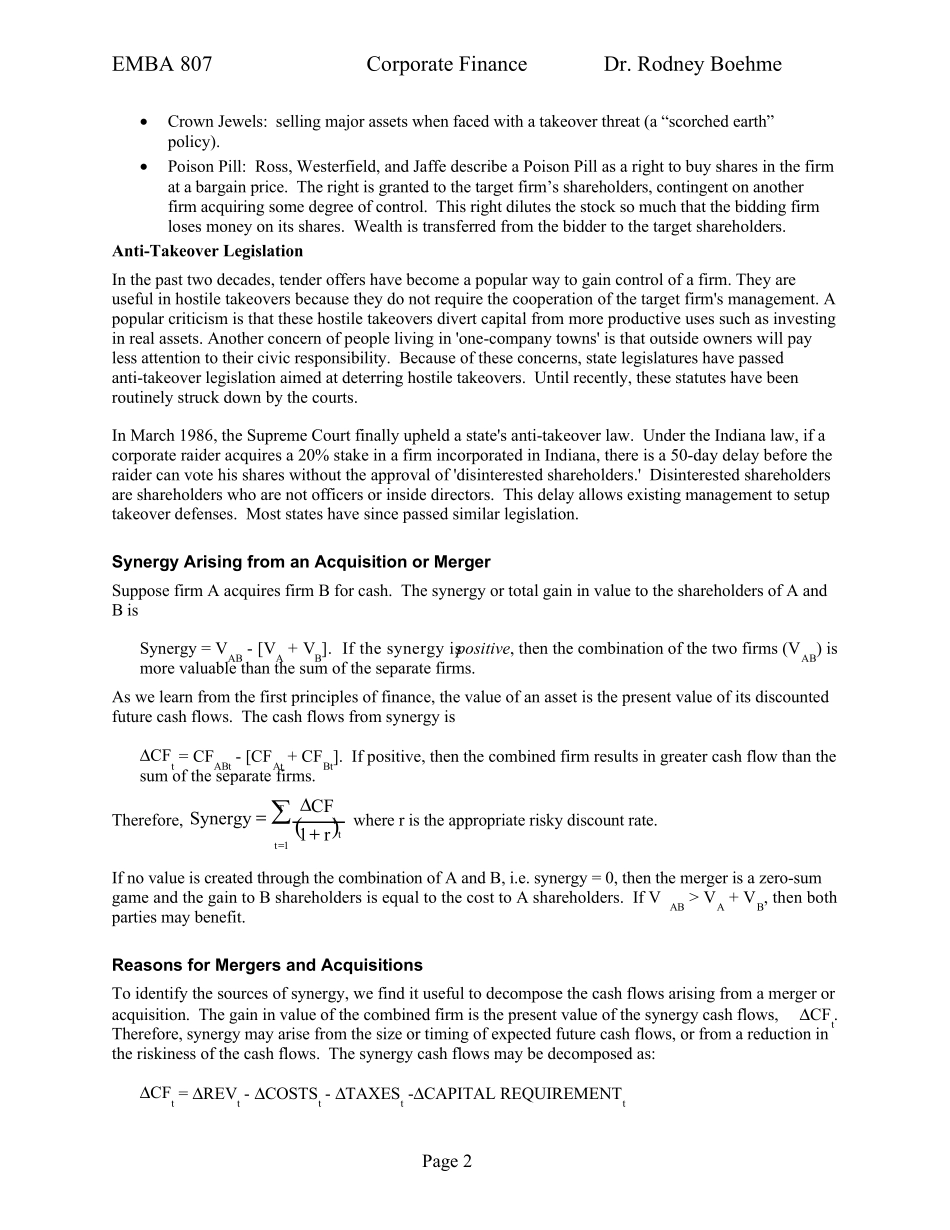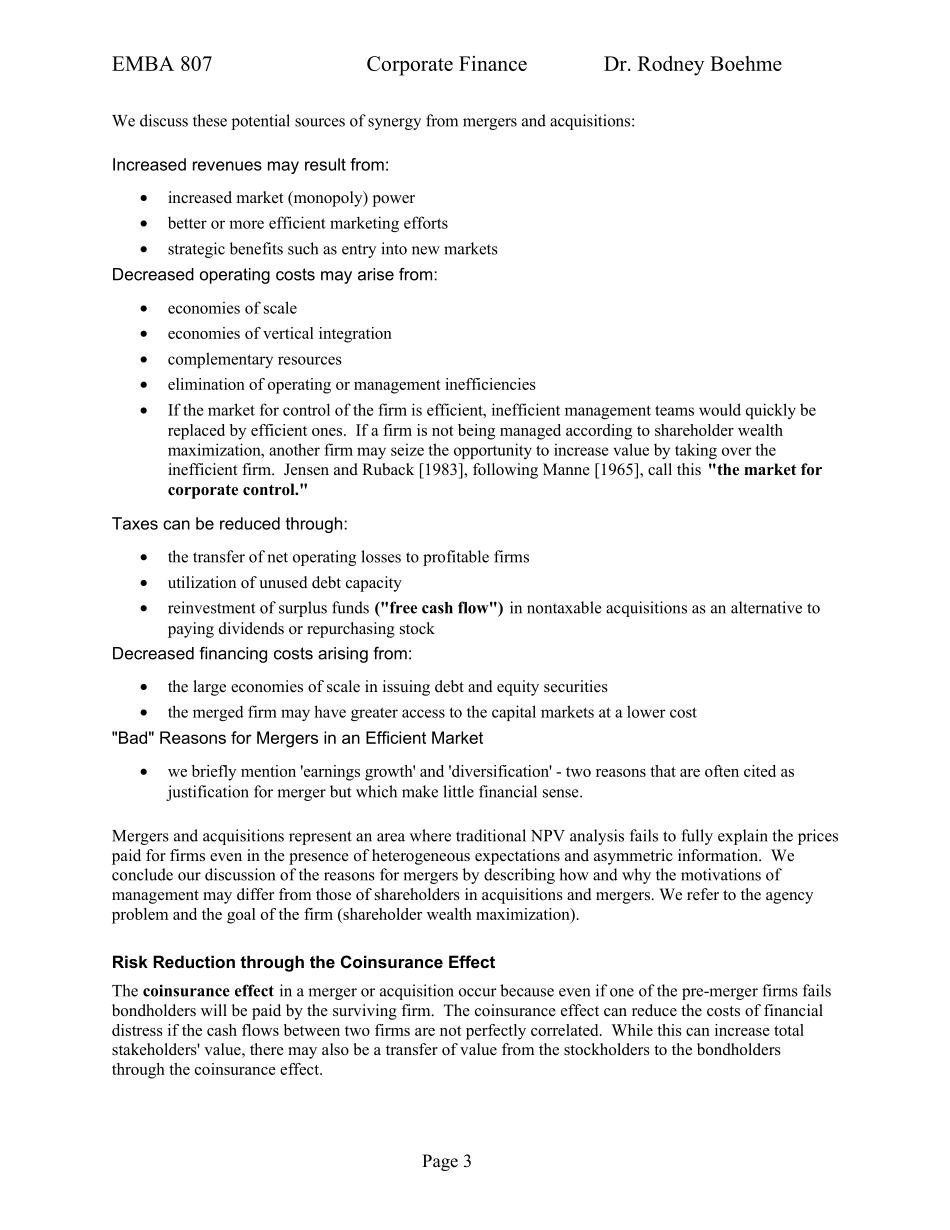EMBA 807 Corporate Finance Dr. Rodney Boehme Page 1 CHAPTER 29: MERGERS AND ACQUISITIONS AND CORPORATE RESTRUCTURING MERGERS AND ACQUISITIONS Merger: one firm absorbs the other. Must be approved by the stockholders of each firm. Acqu isition of stock: an offer is made to a firm’s shareholders. The biggest concerns in a merger are that it may be taxable (in a cash buyout), there may be disgruntled minority shareholders, and it transfers all of the assets and liabilities of the acquired firm. In an acqu isition of assets , the acquiring firm gets control of the assets without having to deal with minority shareholders. The biggest advantage of an acqu isition of stock through a tender offer is that management approval of the acquisition is not necessary. If enough shareholders tender their stock, control can be obtained despite management resistance. Anti-takeov er Prov isions in Corporate Charters Quite often management is able to write anti-takeover provisions into their corporate charters. Examples of anti-takeover protection include: • staggered terms for the board of directors • an "equal protection" provision that minority shareholders are offered at least the same value as any other shares that are sold in a takeover • a provision so that "supermajority" vote (e.g. 80%) is required for a merger • a "lockup" provision prohibiting a hostile raider from quickly dismantling these takeover defenses once he has obtained a majority interest in the firm Even T. Boone Pickens, a vocal critic of entrenched management, has instituted anti-takeover provisions at his firm. Pickens owns 2% of Mesa Limited Partners and is the general partner. A June 1987 amendment fixed the value of Picken's equity ...


